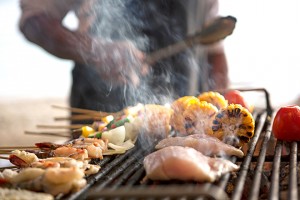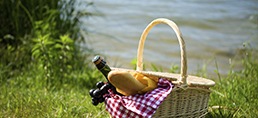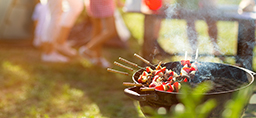
Barbecues and picnics are synonymous with warm weather, and following food safety rules will help ensure that everyone stays healthy, an expert says.
“First and foremost, remember that the ‘time-temperature danger zone’ is between 40 degrees Fahrenheit and 140 degrees Fahrenheit,” said Rebecca Blake, director of clinical nutrition at Mount Sinai Beth Israel Hospital in New York City. “Foods should not be left in this temperature range for more than two hours. If it is, it should be thrown away immediately.”
On very hot days, when temperatures top 90 degrees Fahrenheit, food should be left out for no more than one hour, she noted.
“Leaving food out too long at room (or outdoor) temperatures can cause bacteria (Staphylococcus aureus, Salmonella, E. coli and Campylobacter) to grow to dangerous levels that can make us sick—usually with symptoms of nausea, vomiting, diarrhea,” Blake said.
She also recommends using a meat thermometer to be certain that foods are fully cooked. Internal temperatures should be at least 165 degrees Fahrenheit for poultry, at least 160 degrees Fahrenheit for burgers and egg products, and at least 140 degrees Fahrenheit for steaks and chops, she said.
Blake outlined barbecue safety tips:
- Closely monitor how long foods have been out of the cooler/fridge or the oven/barbecue. Refrigerate or freeze uneaten food before the two-hour mark. If in doubt, throw it out, Blake said.
- Use separate platters, cutting boards and utensils for raw and cooked food. Thoroughly wash all fruits and vegetables that will be eaten raw.
- Always wash your hands before preparing or serving food, and always wash your hands between touching raw food and other food items or surfaces.
- Try not to overeat. Listen to your body and when you are gently full, stop eating, Blake said.
- Stay hydrated by drinking lots of water and limiting your intake of alcohol, which can cause dehydration.
 /a>
/a>
 /a>
/a>
 /a>
/a>